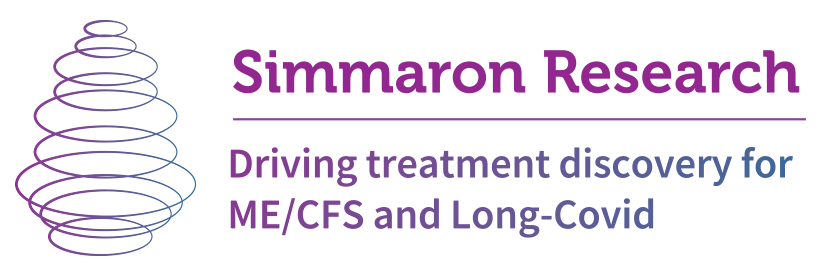Big Antiviral Trial Could Usher in New Treatment Era for Fibromyalgia
A New Approach to Fibromyalgia
Infections are a common trigger for fibromyalgia (FM), and fibromyalgia patients experience many 'sickness behavior' symptoms, but we haven't usually associated FM with viruses or immune system problems.
That's been changing recently. A immune biomarker has been proposed. Small fiber neuropathy - possibly caused by immune dysregulation - has been found and Dr. Dantini has been treating FM with antivirals for years. The immune system's starting to get some respect in FM.
Now, in a surprising twist, it's going to be fibromyalgia rather than chronic fatigue syndrome, that's getting the big, placebo-controlled, double-blinded multi-center antiviral trial. Last year we heard that Dr. William Pridgen in Alabama was getting his ducks in a row for a major antiviral trial.
Four weeks ago in an email exchange, he confirmed that the money - $3.3 million dollars - all gathered from 'angel investors' is in hand, and the four-month 143-patient trial began in early October. Pridgen's Innovative Med Concepts biotech startup is producing the study.
A Different Path
The pathways researchers and doctors take to get to disorders like FM or chronic fatigue syndrome are nothing but diverse, and it's worth taking a look at how Dr. Pridgen, a surgeon, came to fibromyalgia. (Dr. Julia Newton's pathway to ME/CFS was through elderly people experiencing dizziness and, to her surprise, a great deal of fatigue.) Dr. Pridgen's pathway to fibromyalgia was through the gut.
Pridgen saw a pattern emerge in his treatment of thousands of patients with chronic gastrointestinal issues that intrigued him. A patient would get better, but then experience a stressful event that would send him/her back into the soup. They would get better, but during the next relapse they would stay sick longer and their recovery period would be shorter.
Eventually, they would be sick all the time. The problem, he thought, had to be some sort of pathogen that was steadily increasing with every recurrence. Giving his patients antivirals helped, but problems remained.
Then he found that adding an anti-inflammatory (which also had anti-viral properties) reduced their fatigue, gastrointestinal complaints, depression, and anxiety markedly and improved their energy. An observational study indicating that the combination drug approach had a 90% 'efficacy rate' led Pridgen to start a company, enlist investors, and ultimately produce the large treatment trial.
Pridgen's theory fits glove and hand with several other fibromyalgia/chronic fatigue syndrome theories. As with Van Elzakkers' vagus nerve infection theory for ME/CFS, Pridgen's theory begins with a nerve-loving virus that takes up residence - for life - in nerves in the sensory ganglia found across the body.
Instead of HHV6 or EBV Pridgen believes herpes simplex viruses, are the key in FM/ME/CFS. Other than a 1993 theory proposing herpes simplex virus was at play in ME/CFS, interest has been scanty. HSV-1's ability to affect many of the genes and gene pathways suspected of playing a role in nervous system disorders such as Alzheimer's, Parkinson's, depression, chronic fatigue syndrome, and autism, however, lead one researcher to propose it could play a role in all of them.
HSV-1 has been found in the esophagus, stomach, and duodenum of the gastrointestinal system. In fact, HSV-1 was proposed to cause 'recurrent functional gastrointestinal disorders such as IBS, as far back as 1996.
Pridgen's patent application indicates that he believes that stressors and peptides and hormones released by the sympathetic nervous system and HPA axis set the stage for herpes simplex-1 reactivation. Pridgen proposes that repeated HSV reactivation can kill the sensory nerve cells ( small fiber neuropathy?) and destroy part of the nerve ganglion. (Stress-induced HSV-1 reactivation has been documented in laboratory animal studies.)
Once these neurons and ganglia are damaged, Pridgen believes they send out signals that ultimately muck up the pain processing centers in the central nervous system. The over-generation of neurotransmitters such as glutamate, Subsequent releases of substance P, serotonin, norepinephrine, dopamine, and brain-derived neurotrophic factor (BDNF) involved in this process then cause central sensitization.
Antiviral Plus
Pridgen proposes to stop the viral reactivation and the central sensitization with antivirals; an approach that's been tried before in chronic fatigue syndrome, but not in the way Pridgen's doing it. One of Pridgen's patent applications indicates that one of his unique insights has been to combine valacyclovir (Valtrex) with an anti-inflammatory, Celecoxib (Celebrex) that has antiviral properties. Other combinations are being tested and Pridgen stated they have not released the makeup of IMC formulation used in the trial.
Celecoxib (Celebrex) is a non-steroidal anti-inflammatory (NSAID) COX-2 inhibitor usually used in the treatment of osteoarthritis, rheumatoid arthritis, acute pain, painful menstruation, and menstrual symptoms. Pridgen proposes that the two drugs hit the virus at different stages of its life cycle. Pummeling the virus with that one-two punch, he believes, will finally stop the virus from reactivating. Pridgen and Duffy are looking for herpes simplex virus, but other herpes viruses could be affected by this treatment. We won't know if they are until further studies are done.
*Update - no further viruses were found.
Inflammation Gone Awry
Pridgen and his partner, molecular virologist, Carol Duffy will also attempt to develop a diagnostic test for fibromyalgia using cytokine arrays they believe will document high levels of pro-inflammatory cytokines and low levels of anti-inflammatory cytokines.
Pridgen believes the bodies of people with fibromyalgia and chronic fatigue syndrome are basically overreacting to a virus that almost all of us carry.
“It’s basically exaggerating its reaction to the virus. Any little stress reactivates the virus, and, rather than the body saying, ‘Oh, this is just a virus I’ve been living with this since I was five,’ the body keeps saying, ‘Oh, my God,’ and throws on all this inflammation, and that gives these people this pain."“There is a theory that all pain, one way or another, is inflammation,” Duffy says. “It’s inflammation gone awry.”
Not just Fibromyalgia
Pridgen and Duffy have their eyes on more than Fibromyalgia. Pridgen's provisional patent proposes this treatment will work for chronic fatigue syndrome, irritable bowel syndrome, chronic pain, chronic headache, chronic neck pain, chronic back pain, chronic depression, chronic clinical anxiety disorder, post-traumatic stress disorder (PTSD), brain fog, cognitive dysfunction and chronic interstitial cystitis.
Celebrex - The Antiviral?
We don't hear anything about Celecoxib as a virus fighter in ME/CFS, but some evidence suggests it could be efficacious against herpes simplex virus. The ability of COX-2 inhibitors to decrease prostaglandin production is believed to push the immune system towards a Th1 (antiviral) response and away from the Th2 response often found in ME/CFS.
Celebrex was also shown to reduce stress-induced herpes virus reactivation in the nervous systems of mice. Another study found that reactivation of HSV-1 in mice was associated with upregulation of COX-2 gene expression in their nerve ganglia. HHV-6 can also induce COX-2 expression. (Both COX-1 and COX-2 are needed for viral replication).
One mother found that VIOXX (now off the market) reduced her daughter’s IL-6 levels and eliminated the 'panic attacks' she'd experienced following a central nervous system infection.) (Aspirin, flavonoids, vitamin E, and fish oils also inhibit COX-2. The efficacy some ME/CFS patients experience from using omega-3 fatty acids could be due to its antiviral effects.)
Tissue Biopsies
Along with treating the virus, Pridgen and his partner, molecular virologist Carol Duffy, will be using PCR to test for the virus, not in the blood, but in gut tissue samples. After the Chronic Fatigue Initiative's Pathogen study failed to find evidence of viral infection in the blood, Pridgen and Duffy are testing gut samples for herpes virus simplex in their study.
First PCR will be used to search for herpesviruses in both the control and FM gut samples. Then antibodies will be used to determine if an active infection is present. In subsequent studies, electron microscopy will look for the herpesviruses particles themselves.
In preliminary studies, 18/19 fibromyalgia patients with gut issues contained herpes simplex virus DNA in their gut tissues. No other herpesviruses were found. Immunoblot testing indicated that an active infection was present in eight of nine positive biopsies.
Conclusion
Pridgen and Duffy's big multi-center antiviral trial in Fibromyalgia is nothing if not exciting in its scope and approach. Pridgen's ability to come up with over $3,000,000 in startup funding suggests he and Duffy have got some solid data backing their trial up. If the results are positive, Pridgen and Duffy could usher in an entirely new way of treating both fibromyalgia and chronic fatigue syndrome.




